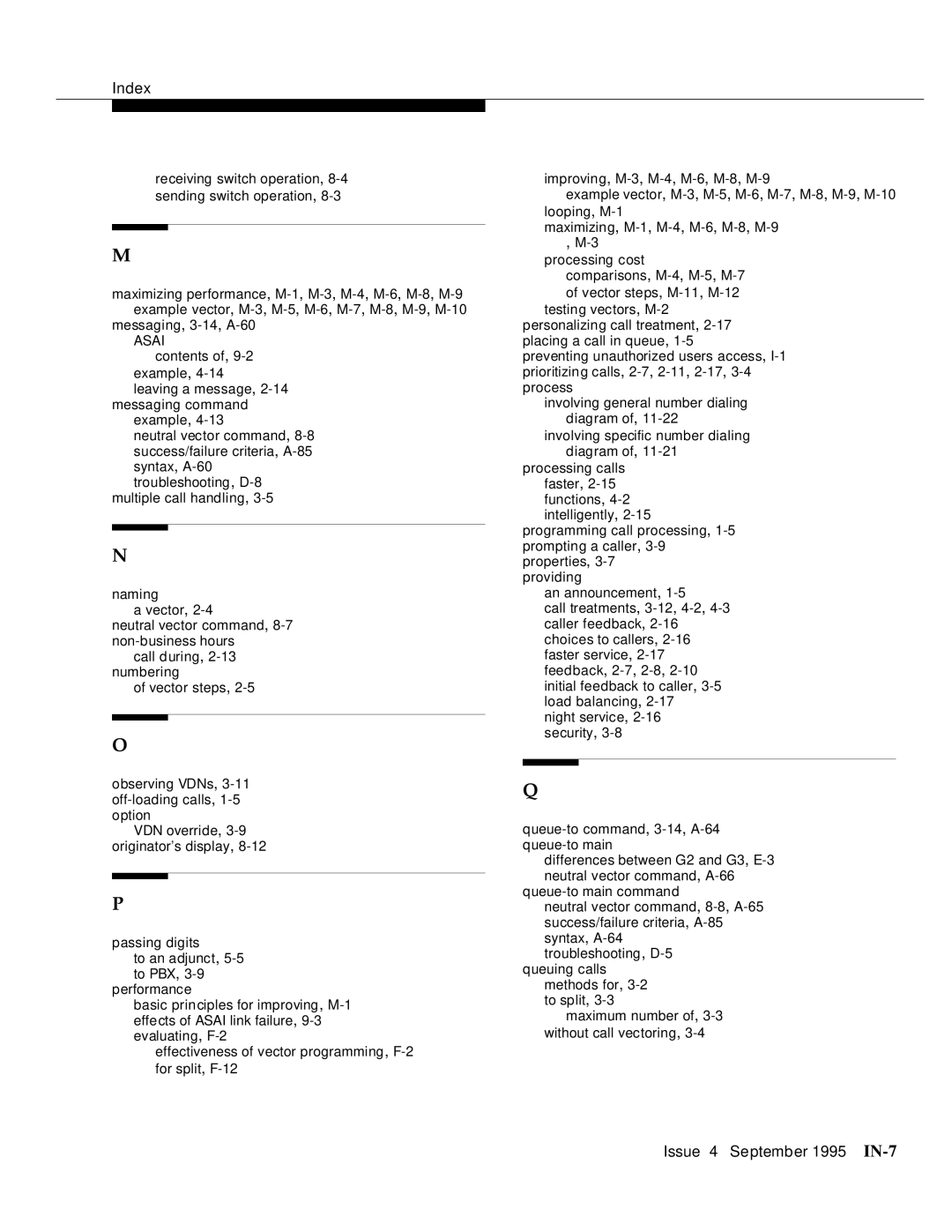receiving switch operation, 8-4sending switch operation, 8-3
M
maximizing performance, M-1,M-3,M-4,M-6,M-8,M-9example vector, M-3,M-5,M-6,M-7,M-8,M-9,M-10
messaging, 3-14,A-60
ASAI
contents of, 9-2example, 4-14
leaving a message, 2-14messaging command
example, 4-13
neutral vector command, 8-8success/failure criteria, A-85syntax, A-60troubleshooting, D-8
multiple call handling, 3-5
N
naming
a vector, 2-4
neutral vector command, 8-7non-business hours
call during, 2-13numbering
of vector steps, 2-5
O
observing VDNs, 3-11off-loading calls, 1-5option
VDN override, 3-9originator’s display, 8-12
P
passing digits
to an adjunct, 5-5to PBX, 3-9
performance
basic principles for improving, M-1effects of ASAI link failure, 9-3evaluating, F-2
effectiveness of vector programming, F-2for split, F-12
improving, M-3,M-4,M-6,M-8,M-9
example vector, M-3,M-5,M-6,M-7,M-8,M-9,M-10looping, M-1
maximizing, M-1,M-4,M-6,M-8,M-9
,M-3
processing cost comparisons, M-4,M-5,M-7of vector steps, M-11,M-12
testing vectors, M-2
personalizing call treatment, 2-17placing a call in queue, 1-5
preventing unauthorized users access, I-1prioritizing calls, 2-7,2-11,2-17,3-4process
involving general number dialing diagram of, 11-22
involving specific number dialing diagram of, 11-21
processing calls faster, 2-15functions, 4-2intelligently, 2-15
programming call processing, 1-5prompting a caller, 3-9properties, 3-7
providing
an announcement, 1-5
call treatments, 3-12,4-2,4-3caller feedback, 2-16choices to callers, 2-16faster service, 2-17feedback, 2-7,2-8,2-10initial feedback to caller, 3-5load balancing, 2-17
night service, 2-16security, 3-8
Q
queue-to command, 3-14,A-64queue-to main
differences between G2 and G3, E-3neutral vector command, A-66
queue-to main command
neutral vector command, 8-8,A-65success/failure criteria, A-85syntax, A-64
troubleshooting, D-5queuing calls
methods for, 3-2to split, 3-3
maximum number of, 3-3without call vectoring, 3-4

